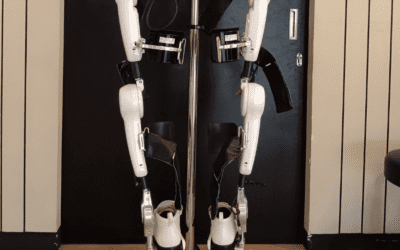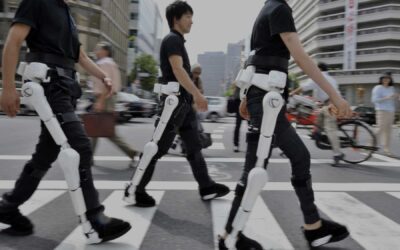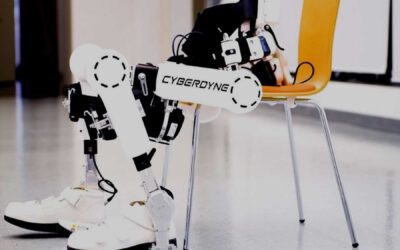Cyberdyne Treatment uses HAL to improve the function of the wearer. HAL [Hybrid Assistive Limb] is the world‘s first technology that supports and regenerates the wearer’s physical functions according to the wearer’s intentions and for this feature, it is named “Wearable Cyborg™”.
Cyberdyne treatment steps
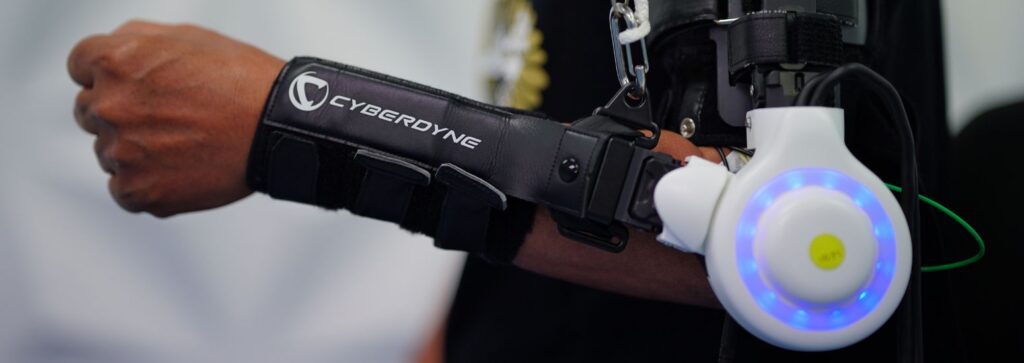
Command Signals
The brain first generates command signals. Next, the muscles receive the command signals generated by the brain.
When a person’s body moves, they first think about the motions in their brain. By the
thought “I want to walk.” our brain channelises the required signals to the muscles needed for
the motion through nerves.
Transmission of Signal
Every muscle in a healthy body can receive signals from the brain to it and move as
strongly and fast as intended. In the case of HAL, it is done with help of the
technology involved in stimulating the nervous system.
Receiving Signals
Signals sent to muscles by the brain leak on the skin surface as very faint signals, so-called
“bio-electric signals [BES]”. HAL can read BES only by attaching the originally developed
detectors on the surface of the weaver‘s skin. By consolidating various information, HAL
recognises what sort of motions the patient intends.
Perceiving Signals
A human’s speed of thinking, controlling the muscle, and moving the joints are
extremely rapid. HAL, as well as man, can process various information instantly. When the body starts moving, HAL moves too. Therefore, HAL can assist the wearer’s movements.
Feedback
The mechanism to move the human body does not end up with only moving muscles. The brain confirms how the body would have moved and on what sort of signal. When HAL has
appropriately assisted the motions of walking, the “I could walk!” feeling is fed back to the brain.
This is how the brain can learn the way to emit necessary signals for “walking”
gradually. This leads to “the important first step” in walking the physically challenged
individual without being assisted by HAL. HAL is the only robot that can provide appropriate
solutions for the motions of the brain.
Cyberdyne technology Recovery
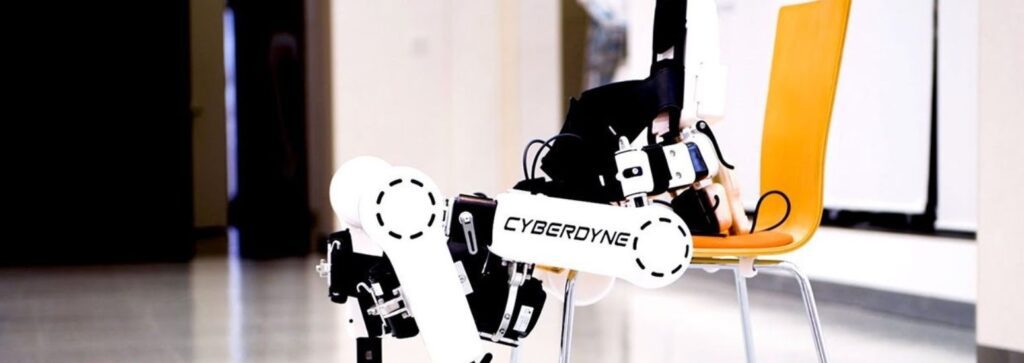
A very crucial part of robotic technology research is involved with lower extremity rehabilitation. People with lower extremity disorders leading to problems in gait are increasing rapidly in contemporary ageing societies, but the availability of specialised rehabilitation personnel and equipment does not currently match these requirements
Individuals around the world use Cyberdyne technology to regain their mobility and restore their independence. Rehabilitation robots in physical therapy eventually work toward a patient’s strength and endurance!
The HAL Robo Suits make a positive difference in the life of a patient affected by stroke, and
paralysis, affecting the spinal cord, joints, and the central nervous system.
Testimonial
Diana Hong who had a stroke in the year 2019 has caused her to have difficulty living her daily life. She experienced extreme weaknesses in her left arm which has affected her to live a normal life. After she has undergone the Cyberdyne treatment, which helped her to make significant gains, she has become more independent in her daily life.
Connect with us at https://rehabmodalities.com/ for a demo.

